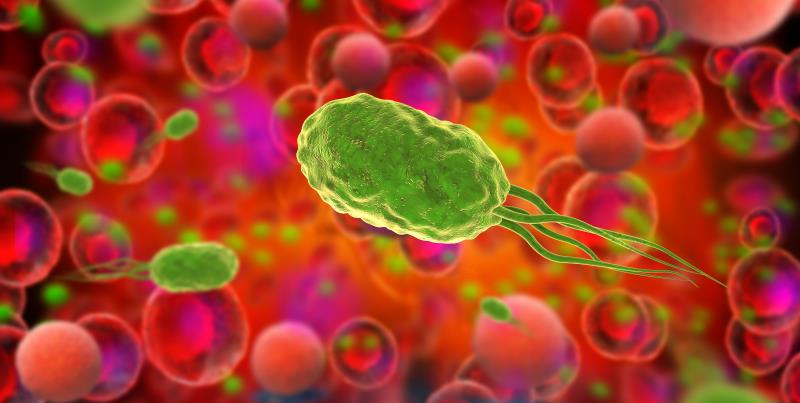
Helicobacter pylori infection increases the risk of gastric cancer, particularly among ethnic minorities and smokers, reports a new study.
Researchers conducted a retrospective cohort analysis of 371,813 patients (median age, 62 years; 92.3 percent male) whose data were retrieved from the Veterans Health Administration. All participants had tested positive for H. pylori infection. The primary outcome was the incidence of distal gastric adenocarcinoma (GAC), occurring at least 30 days after the detection of H. pylori.
Over a median follow-up of 7.4 years, 2,024 patients developed GAC, resulting in an incidence rate of 0.54 percent. Those who eventually developed the malignancy tended to be older (median age, 65.1 vs 62 years; p<0.001), male (97 percent vs 92.3 percent; p<0.001).
Notably, those with GAC were also more likely to be African American (31.7 percent vs 23.8 percent; p<0.001) and ever smokers (30.7 percent vs 26.4 percent; p<0.001). Median age at cancer diagnosis was 69 years.
Multivariable competing-risk models confirmed these findings. For every 5-year increase in age, for instance, the risk of GAC increased by 13 percent (subhazard ratio [SHR], 1.13, 95 percent confidence interval [CI], 1.11–1.15; p<0.001). Being black or of African American ethnicity (SHR, 2.00, 95 percent CI, 1.80–2.22) and being Asian (SHR, 2.52, 1.64–3.89) were also significant risk factors.
Smoking was likewise confirmed to be significantly associated with the likelihood of developing GAC (SHR, 1.38, 95 percent CI, 1.25–1.52; p<0.001).